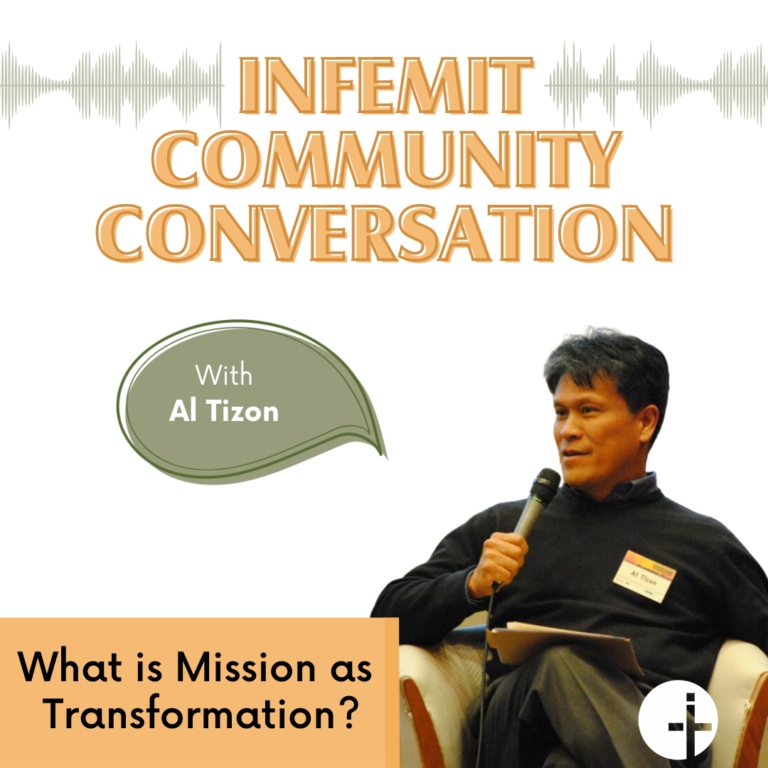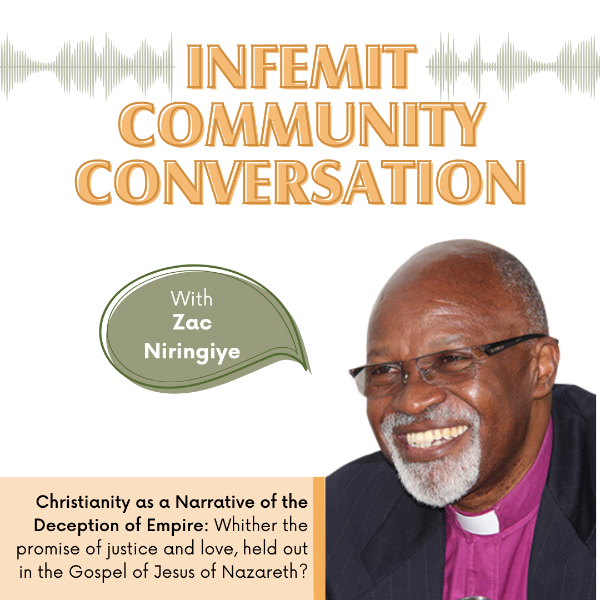An INFEMIT community conversation
As we prepare for our next Stott-Bediako Forum on Transformation Revisited: Mission and Gospel Imagination, we are holding conversations with members of the INFEMIT Community to explore some of the related themes. In this podcast, we talk with Las Newman about the history of evangelical Christian mission in the last half century and the emergence of Mission as Transformation. We explore some of the context in which this mission paradigm emerged and the challenges it faced – and continues to face – as it seeks to further an understanding and practice of mission that is truly holistic and focused on both individuals and the community.
Listen to the conversation with Las, or read the excerpt below.
Click to listen or find the episode on your preferred podcast platform here.
Conversation Excerpt
Las: Why “Transformation?”
Because as we reflected on what was happening in the world prior to the 1970’s, mission was, yes, on one hand, proclamation. It was evangelistic in that sense. But if it had anything to do with looking at anything outside of proclamation, it looked at development. It was Christian aid, Christian relief. Several agencies were coming into being that were trying to respond to the poor. And, so, development as seen as mission began to be a term that emerged that in a sense was focusing on economic wellbeing and economic growth. Development was looked at in economic terms.
And as we reflected more and more on this, we began to see that we needed more than development. We needed transformation. This is what the New Testament speaks to. This is what the gospels speak to. Transformation of the whole person, transformation of the whole community, transformation of society, transformation of politics, in our religious life, transformation all around.
In fact, Saint Paul, himself, grasped this and speaks to it in the letter to the Corinthians and talks about: we all with unveiled face are seeing daily as we change, as we transform, more and more into the image of Christ (2 Corinthians 3:18). That’s the goal. That should be the goal of mission, and that should be the goal of proclamation. That should be the goal of our Christian engagement in the world: to see Christ being formed in human beings around the world.
The views and opinions expressed in these interviews are those of the interviewee and do not necessarily reflect an official position of INFEMIT. We seek to foster reflection through conversation, and we ask you to be respectful and constructive in your comments.






Leave a Reply